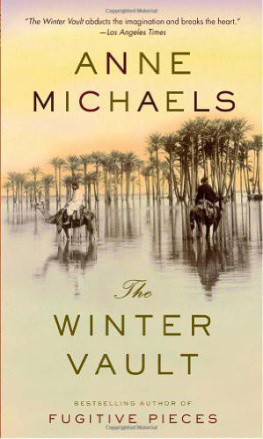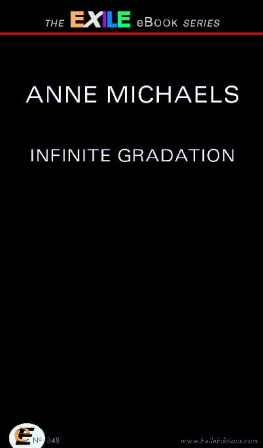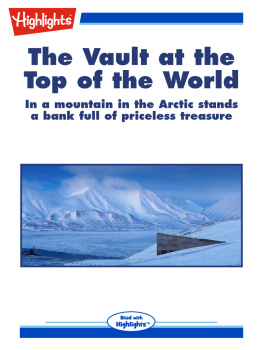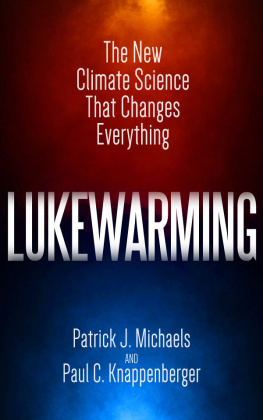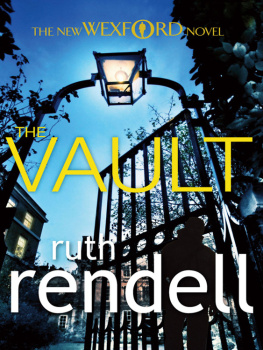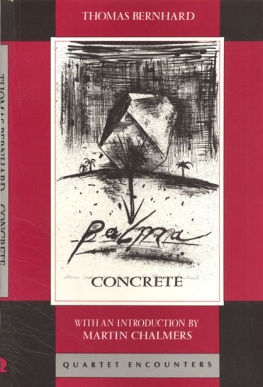Anne Michaels - The Winter Vault (Vintage International)
Here you can read online Anne Michaels - The Winter Vault (Vintage International) full text of the book (entire story) in english for free. Download pdf and epub, get meaning, cover and reviews about this ebook. year: 2010, publisher: Vintage, genre: Detective and thriller. Description of the work, (preface) as well as reviews are available. Best literature library LitArk.com created for fans of good reading and offers a wide selection of genres:
Romance novel
Science fiction
Adventure
Detective
Science
History
Home and family
Prose
Art
Politics
Computer
Non-fiction
Religion
Business
Children
Humor
Choose a favorite category and find really read worthwhile books. Enjoy immersion in the world of imagination, feel the emotions of the characters or learn something new for yourself, make an fascinating discovery.
- Book:The Winter Vault (Vintage International)
- Author:
- Publisher:Vintage
- Genre:
- Year:2010
- Rating:5 / 5
- Favourites:Add to favourites
- Your mark:
- 100
- 1
- 2
- 3
- 4
- 5
The Winter Vault (Vintage International): summary, description and annotation
We offer to read an annotation, description, summary or preface (depends on what the author of the book "The Winter Vault (Vintage International)" wrote himself). If you haven't found the necessary information about the book — write in the comments, we will try to find it.
The Winter Vault (Vintage International) — read online for free the complete book (whole text) full work
Below is the text of the book, divided by pages. System saving the place of the last page read, allows you to conveniently read the book "The Winter Vault (Vintage International)" online for free, without having to search again every time where you left off. Put a bookmark, and you can go to the page where you finished reading at any time.
Font size:
Interval:
Bookmark:
As pines keep the shape of the wind so words guard the shape of a man. George Seferis
Many histories of Egypt, Sudan, Abu Simbel, Poland, and the St. Lawrence Seaway were consulted during the writing of this novel, but I wish to acknowledge two sources above all: The Salvage of the Abu Simbel Temples: Concluding Report (Arab Republic of Egypt and Ministry of Culture, Vattenbyggnadsbyran [VBB] Sweden) and Hassan Dafalla's The Nubian Exodus. It is my hope especially that Hassan Dafalla's memory is honoured by the account I have made here. I am grateful to the Lost Villages Museum near Cornwall, Ontario; to Marian Wenzel's House Decoration in Nubia for the poem written on the wall; to David Crowley's Warsaw; and to the Guardian Weekly, where I came across the term petrichor.
Especial, long-standing thanks to John Berger, Joe McBride, Janis Freedman Bellow, Sam Solecki, and Gareth Evans.
Many thanks to Ellen Seligman, as always as deeply astute and generous an editor as one could wish. To Marilyn Biderman for her acuity and kindness. To Liz Calder, Sonny Mehta, Robbert Ammerlaan, Roberta Mazzanti, Arnulf Conradi, and Elisabeth Ruge. To Helen Garnons-Williams, Diana Coglianese, Deborah Garrison, Anita Chong, and Heather Sangster.
Thanks to Dr. Elaine Gordon and Dr. S.J. Batarseh for confirming details regarding treatment of a still-birth in late pregnancy, in the time and place in which this event is set in the novel. And to Dr. Lorraine Chrisomalis Valasiadis for her advice.
Thanks to Margaret and Chris Cochran for the extraordinary tour of Wellington, New Zealand. Thanks to Andrew Wylie, Simon McBurney, Stephen and Mary Camarata, Mark Strand, Wallace Shawn and Deborah Eisenberg, Dan Gretton, Jack Diamond, David Sereda, Eve Egoyan. Thanks to Rebecca and Evan. Thanks to Zbysiu, Marzena, Dennis, Jeff, Luigi and Nan, the entire Freedman family, Arlen and Jan, Jane and Andrew. Special thanks to Sheila and Robin for invaluable gifts of time.
The beginning scenes of the book, set on the houseboat, were first read publicly at various venues in Canada and the United States in 1997. My thanks to these book-sellers and festivals. And special thanks to the Elliott Bay Book Shop, A Different Drummer Books, and The Flying Dragon Bookshop.
This book remembers Rose Kornblum, Rubye Halpern, Ida Rosen, Robert Mirvish, Robert Muma, Professor Michael Dixon, and Connie Rooke. This Warsaw honours Isaiah Michaels. This seaway, the dear lost. And these pages are an embrace for the daughters: dearest Rebecca; Naomi Rose; Gemma; Mary; Jaymes; Viva. May you fare forward with strength and love.
Also by Anne Michaels

FICTION
Fugitive Pieces
POETRY
Skin Divers
Miner's Pond
The Weight of Oranges

Riverbed
G enerators floodlit the temple. A scene of ghastly devastation. Bodies lay exposed, limbs strewn at hideous angles. Each king was decapitated, each privileged neck sliced by diamond-edged handsaws, their proud torsos dismembered by chainsaws, line-drilling, and wire-cutting. The wide stone foreheads were reinforced by steel bars and a mortar of epoxy resin. Avery watched men vanish in the fold of a regal ear, lose a shoe in a royal nostril, fall asleep in the shade of an imperial pout.
The labourers worked for eight hours, dividing the day into three shifts. At night, Avery sat on the deck of the houseboat and re-calculated the increasing tension in the remaining rock, re-evaluated the wisdom of each cut, the zones of weakness and new stress forces as, tonne by tonne, the temple disappeared.
Even in his bed on the river, he saw the severed heads, the limbless minions, stacked and neatly numbered in the floodlights, awaiting transport. One thousand and forty-two sandstone blocks, the smallest weighing twenty tonnes. The miraculous stone ceiling, where birds flew among the stars, lay dismantled, out in the open, below real stars, the real blackness beyond the floodlights so intense it seemed to be coming apart, like wet paper. The workers had first attacked the surrounding rock, a hundred thousand cubic metres carefully plotted, labelled, and removed by pneumatics. And soon, the building of artificial hills.
To free himself from the noise of machinery, Avery listened for the river flowing past their bed, his head against the hull. He imagined, clinging to the dark wind, the steady breath of glass-blowers in the city five hundred kilometres north, the calls of water-sellers and soft-drink vendors, the shrieking of kingfishers through the surf of ancient palms, each sound evaporating into the desert air where it was never quite erased.
The Nile had already been strangled at Sadd el Aali, and its magnificent flow had been rerouted before that, to increase the output of Delta cotton, to boost the productivity of the unimaginably distant Lancashire mills.
Avery knew that a river that has been barraged is not the same river. Not the same shore, nor even the same water.
And although the angle of sunrise into the Great Temple would be the same and the same sun would enter the sanctuary at dawn, Avery knew that once the last temple stone had been cut and hoisted sixty metres higher, each block replaced, each seam filled with sand so there was not a grain of space between the blocks to reveal where they'd been sliced, each kingly visage slotted into place, that the perfection of the illusion the perfection itself would be the betrayal.
If one could be fooled into believing he stood in the original site, by then subsumed by the waters of the dam, then everything about the temple would have become a deceit.
And when at last after four and a half years of overwork, of illness caused by extremities of heat and cold, or by the constant dread of miscalculation when he stood at last with the Ministers of Culture, the fifty ambassadors, his fellow engineers, and seventeen hundred labourers to gape at their achievement, he feared he might break down, not with triumph or exhaustion, but with shame.
Only his wife understood: that somehow holiness was escaping under their drills, was being pumped away in the continuous draining of groundwater, would soon be crushed under the huge cement domes; that by the time Abu Simbel was finally re-erected, it would no longer be a temple.
The river moved, slow and alive, through the sand, a blue vein along a pallid forearm, flowing from wrist to elbow. Avery's desk was on deck; when he worked late, Jean woke and came to him. He stood up, and she didn't let go, hanging from her own embrace.
Calculate me, she said.
At dusk, the light was a fine powder, a gold dust settling on the surface of the Nile. As Avery took out his paints from the wooden box, thick cakes of solid watercolour, his wife lay down on the still-warm deck. Ceremoniously, he parted her cotton shirt from her shoulders, each time witnessing her body's colour deepening: sandstone, terra cotta, ochre. A glimpse of the secret white stripes under straps, the pale ovals like dampness under stones, untouched by the sun. The secret paleness he would later touch in the dark. Then Jean peeled her sleeves from her arms and turned on her side, her back to him, in the velvet light. The light of darkness, more evening than day.
Avery leaned overboard, dipped his teacup into the river, then set the circle of water next to him. He chose a colour and let it seep into the soft hair of the brush, infused with river water. Gently he released its fullness across Jean's strong back. Sometimes he painted the scene before them, the river-bank, the ruinous work that never stopped, the growing pile of stone physiognomy. Sometimes he painted from memory, the Chiltern Hills, until he could smell his mother's lavender soap in the fading heat. He painted, beginning from childhood, until he was again man-grown. Then, almost the moment he finished, he dipped the cup again into the river and with clear water drew his wet brush through the fields, through the trees, until the scene dissolved, awash on her skin. Some of the paint remained in her pores, until she bathed, the Egyptian river receiving the last earth of Buckinghamshire in its erasing embrace. Of course, Jean never saw his landscapes and, blind, was free to imagine any scene she wished. He would come to think of his wife's languor during that dusk hour each dusk those months of 1964 as a kind of wedding gift to him; and in turn, she felt herself open under the brush, as if he were tracing a current under her skin. In this dusk hour, each gave to the other a secret landscape. In each, a new privacy opened. Every evening that first year of their marriage Avery contemplated Buckinghamshire, his mother's smell, the distance of time from the wet beech forest to this desert, stress points, fissures and elasticity, the pressure map of the soon-to-be-constructed concrete domes, and the heavy mortal beauty of his wife, whose body he was only beginning to know. He thought about the Pharaoh Ramses, whose body above his knees had recently vanished and now lay scattered in the sand, stored in a separate area from the limbs of his wife and daughters. It would be many months before they would be reunited, a family that had not been separated for more than thirty-two hundred years.
Font size:
Interval:
Bookmark:
Similar books «The Winter Vault (Vintage International)»
Look at similar books to The Winter Vault (Vintage International). We have selected literature similar in name and meaning in the hope of providing readers with more options to find new, interesting, not yet read works.
Discussion, reviews of the book The Winter Vault (Vintage International) and just readers' own opinions. Leave your comments, write what you think about the work, its meaning or the main characters. Specify what exactly you liked and what you didn't like, and why you think so.

